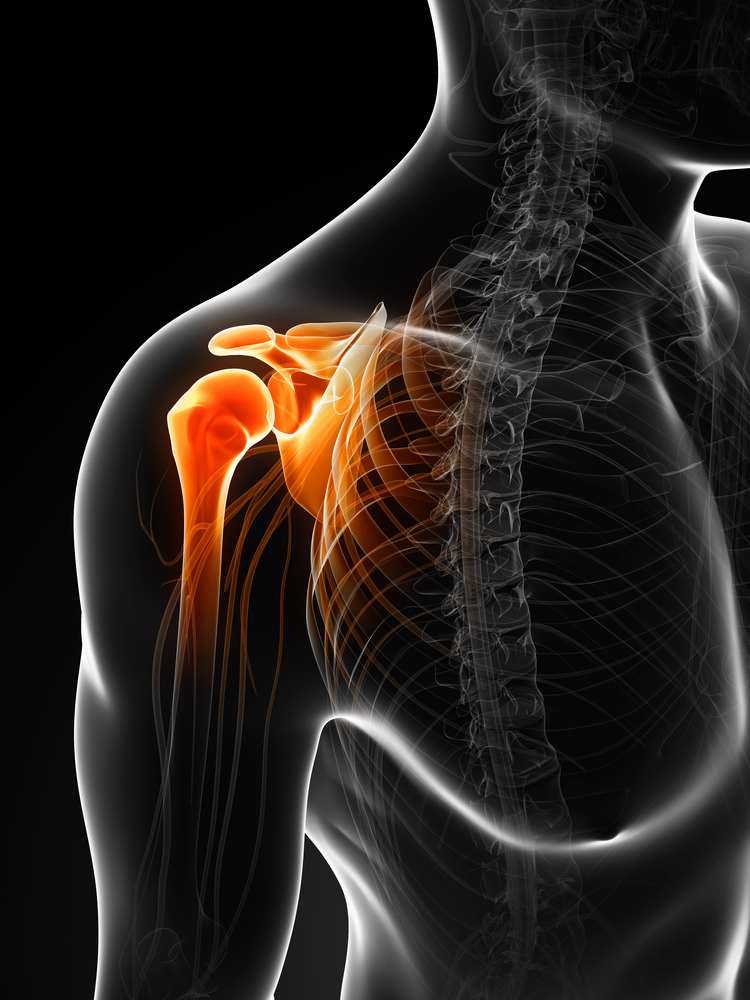Shoulder Pain / Frozen Shoulder PRP Therapy
Shoulder pain can severely limit your mobility, impact your daily life, and negatively affect your overall well-being. From sports injuries to chronic conditions like arthritis or bursitis, effective treatment is crucial to regain your strength, independence, and enjoyment of life.
What is a Frozen Shoulder?
Frozen shoulder, also known as adhesive capsulitis, is a disorder where the synovial membrane, a soft tissue that creates a protective capsule around the shoulder joint, swells, thickens, and contracts. This scarring limits the range of motion in the upper arm. While the exact cause is often unknown, it frequently affects patients who also have other inflammatory conditions. Other people develop frozen shoulders following an accident or period of immobilization, such as after a significant fall or surgery.
What are the symptoms of Frozen Shoulder?
The major signs of a frozen shoulder are pain and stiffness, making movement challenging or even impossible. If you have a frozen shoulder, you'll likely experience a dull or aching pain in one shoulder.
It might hurt in the shoulder muscles that encircle the top of your arm, and you may also feel discomfort in your upper arm. If your pain becomes severe, it can make it difficult to sleep at night.
A frozen shoulder typically progresses through three stages, each with its own set of symptoms and a characteristic timeframe.

Freezing Stage (6-9 months)
- 1. Pain: You'll experience pain, sometimes intense, with every shoulder movement. The pain may gradually worsen and become more noticeable at night.
- 2. Stiffness: Your shoulder's range of motion becomes restricted, making daily activities challenging.
Frozen Stage (4-12 months)
- Stiffness: While the pain may lessen, stiffness becomes more severe. Movement becomes increasingly difficult, impacting daily tasks.
Thawing Stage (6 months - 2 years)
- Recovery: You gradually regain your normal range of motion. This process can take anywhere from six months to two years.
Platelet-Rich Plasma (PRP) Therapy For Frozen Shoulder
What are the causes of Frozen Shoulder?
The exact cause of frozen shoulder remains unclear. However, certain factors may increase your susceptibility:
Inflammation: The primary issue involves inflammation within the shoulder joint capsule, a delicate layer of tissue encasing the joint. This inflammation triggers the formation of scar tissue, which thickens and constricts the capsule, thereby restricting movement.
Injury or Immobilization:Any event that immobilizes the shoulder can elevate the risk of developing frozen shoulder. This includes:
- 1. Shoulder surgery, particularly rotator cuff repairs.
- 2. Fractures, dislocations, or other significant shoulder injuries.
- Periods of prolonged inactivity, such as those experienced after a stroke or heart attack.
Medical Conditions: Certain medical conditions may heighten the risk of developing frozen shoulder, including:
- 1. Diabetes: Individuals with diabetes exhibit a significantly increased risk.
- 2. Thyroid Disorders: Both hyperthyroidism (overactive thyroid) and hypothyroidism (underactive thyroid) can increase the risk.
- 3. Heart Disease:Some studies suggest a potential link between heart disease and the development of frozen shoulders.
Age: Frozen shoulder is most prevalent among individuals between the ages of 40 and 60.
Regenerative Medicine Treatment For Frozen Shoulder
Regencare offers advanced PRP therapy for frozen shoulders in Kerala, which is a regenerative medicine treatment that offers relief from shoulder pain. Derived from the patient's own blood, PRP is processed to concentrate platelets, which are rich in growth factors. These growth factors stimulate tissue repair and reduce inflammation within the affected shoulder joint, potentially offering relief from pain and improving range of motion.
Schedule a consultation with our PRP specialist today for effective shoulder pain relief. Contact us for details.
What are the benefits of PRP Treatment For Shoulder Pain / Frozen Shoulder?
PRP injections for shoulder painoffers several potential benefits:
Pain Reduction: By reducing inflammation and promoting tissue healing, PRP therapy can significantly alleviate shoulder pain.
Improved Range of Motion: The growth factors in PRP can help repair damaged tissues and reduce stiffness, leading to improved range of motion and flexibility in the shoulder joint.
Accelerated Healing: PRP therapy can stimulate the body's natural healing processes, potentially leading to faster recovery times compared to other treatment options.
Reduced Reliance on Medications: By addressing the root cause of pain, PRP therapy can minimize reliance on long-term pain medication use.
Minimally Invasive: PRP therapy is a minimally invasive procedure with a relatively low risk of complications.
Experience the transformative power of PRP therapy. Schedule your consultation today and take the first step towards a pain-free, mobile shoulder.
FAQ Questions on Frozen Shoulder PRP Treatment
PRP injections can be beneficial for reducing pain and improving shoulder function in patients with frozen shoulder. PRP contains growth factors that can stimulate tissue repair and reduce inflammation within the shoulder joint. When combined with physical therapy, PRP may enhance joint mobility and overall function.
The cost of PRP injections for frozen shoulder can vary widely depending on various factors including the severity of patient condition, the number of injections required etc. To obtain an accurate cost estimate for your specific situation, consult with our doctor. Book appointment.
PRP injections for frozen shoulder typically involve minimal side effects. The most common side effect is mild soreness and bruising at the injection site, which usually resolves within a few days. Since PRP is derived from the patient's own blood, the risk of serious side effects, such as allergic reactions, is significantly lower compared to other medications.
Following a PRP therapy session, it's essential to rest your shoulder completely on the day of the procedure. For the next two days, strenuous use of the injected area should be limited. However, gentle movement of the shoulder is generally encouraged during this period to promote blood flow and aid in the healing process.
Most patients experience minimal discomfort during a PRP injection for shoulder pain. It may feel similar to a typical injection, with some mild discomfort or a slight stinging sensation.










